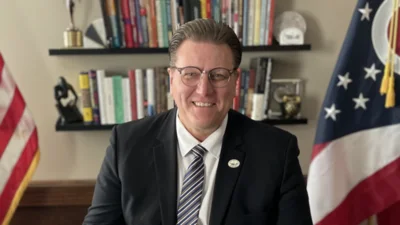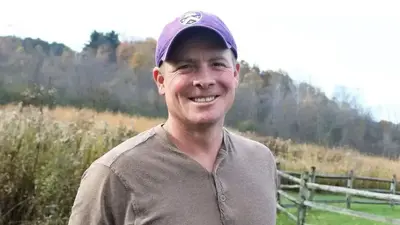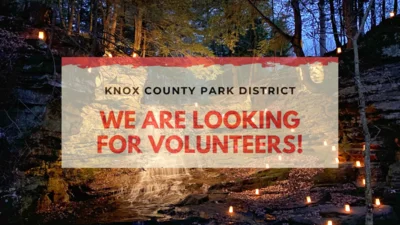As the debate continues about introducing solar to Knox County, Bolender, a lifelong resident of Brown County and a member of Brown County Soil and Water Conservation Board, warned Brown County serves as a case study for other communities contemplating solar developments, sparking conversations about the balance between landowner rights, environmental preservation, and the true long-term costs of solar energy projects.
"One of the biggest things was the promise that after 30 years of this lease, they're going to decommission the farm and put it back just the way they found it. That's absolutely 100% not true," Bolender said.
She emphasized the irreversible damage caused during the construction process.
“Those fields will never be farmed again. Like I said, it takes 100 years to bring back an inch of topsoil,” she said.
Brown County commissioners, initially supportive, have since banned utility solar projects, acknowledging the issues raised by residents.
Bolender expressed dismay at the way Open Roads Renewables approached local landowners to secure leases for solar projects. She said the way Open Road Renewables, which is helming over 1,500 acres of projects in Knox County, including the Fraiser Solar Project, does business is partially to blame.
“This company, they are the original door knockers. And so they go around and they sign everybody up, get everyone to sign a lease. And then once they get these contracts signed, they sell your contract to the next company,” Bolender said.
The financial aspect of the solar projects also came under scrutiny, with Bolender revealing that Open Roads Renewables sold contracts to other companies, making it challenging for local authorities to identify who was responsible for tax payments.
Bolender noted that the promised tax revenue for the county faced delays, and the actual impact on property values remains a growing concern.
She said the Hillcrest Project in Brown County has had five owners since Open Roads Renewables leased the land.
“Open Road Renewables, they're coming in and their job is to sign you up,” she said. “So obviously they're better than a car salesman and they're going to tell you everything that's great and good and you're not going to hear an ounce of anything bad. Hillcrest has been owned by five different companies since the start.”
Bolender discussed the contentious "Good Neighbor Agreement," preventing them from speaking out against the company's actions on their lan
“The Good Neighbor Agreement is essentially hush money because there is money tied to it. You sign a legal document that says you are not going to complain against or talk about anything that the solar companies are doing on your land. You are not allowed to share any of the things that they are doing on your property,” Bolender said.
Bolender highlighted the negative impact on neighboring farms, citing instances of flooding and water rerouting during construction. She claimed that the promises of soil improvement made by the company were not being fulfilled, and the long-term consequences for farmland were dire.
“Once these companies came in and they started taking out the topsoil and rerouting water, the way water flows and damaging the roads, all of these things that we're just I don't even think people thought that it was going to be this bad,” she said.
“I don't think they could have imagined how bad it is. They weren't able to say anything. And so the only ones that did were a few neighboring farms, but what they reported to the EPA (Environmental Protection Agency) – what they didn't get followed up on for several days later, not to mention the fact that the EPA only makes announced buildings. They're not going to surprise them. So it gives the solar construction companies a chance to kind of hide whatever they're doing.”
Bolender also noted the drop in real estate prices in properties surrounding the solar development.
"I know two instances for certain that homeowners tried to sell their homes once they found out that solar was coming in and they are still sitting on those homes. So, in my opinion, those homes are worth nothing now because no one wants to buy that property and live next to these panels,” she said.
She added that the drop in property values associated with such projects is the reason solar companies lease land instead of purchasing it.
“This paints the whole picture,” she said. “If your land was going to be worth anything in 30 years and then they'd buy it from you right now, they wouldn't lease it. They don't want it in 30 years. They want it to be in your name. And that's how it's going to be a wasteland and something not usable for your family. Because we've seen land values going up since the 80s. It's not stopped. In 30 years, imagine what it's going to be worth. But if you've got panels on your farm, it's not going to be worth a dime."
Due to her experience in Brown County, Bolender suggested Knox County ban solar projects.
“For a county like Knox County, if you are looking to preserve and protect your county, then you really need to not allow solar,” she said.
“And if you look at the counties that have banned solar, they are counties that have been affected by construction. We are behind the eight ball on this. We've banned solar after the fact, after we realized what devastation it brought to the county, Knox is in a position to stop it before it starts. I think as a commissioner you're going to have a lot less headaches if you just stop it before it starts because your county won't be happy with it. Your residents won't be happy.
In a handout given to attendees walking into a Nov. 30 event hosted by Knox Smart Development, Open Road Renewables refuted the claims elevated by Bolender.
In the handout Open Road Renewables emphasized their commitment to storm water regulations and the flat nature of the construction site at Hillcrest.
The dismissed accusations of late payments to the county as a “false statement."
It also addressed Brown County's decision to suspend further development of large solar facilities.
“Brown County decided to suspend further development in the county of large facilities (those more than 50 megawatts or about 300-350 acres). It should be noted that some of the design features and permit conditions of the early vintage projects like Hillcrest, which began the permitting process more than 5 years ago, are materially different than what is being proposed by projects proposed today, including Frasier,” Open Roads Renewables said in the handout.






